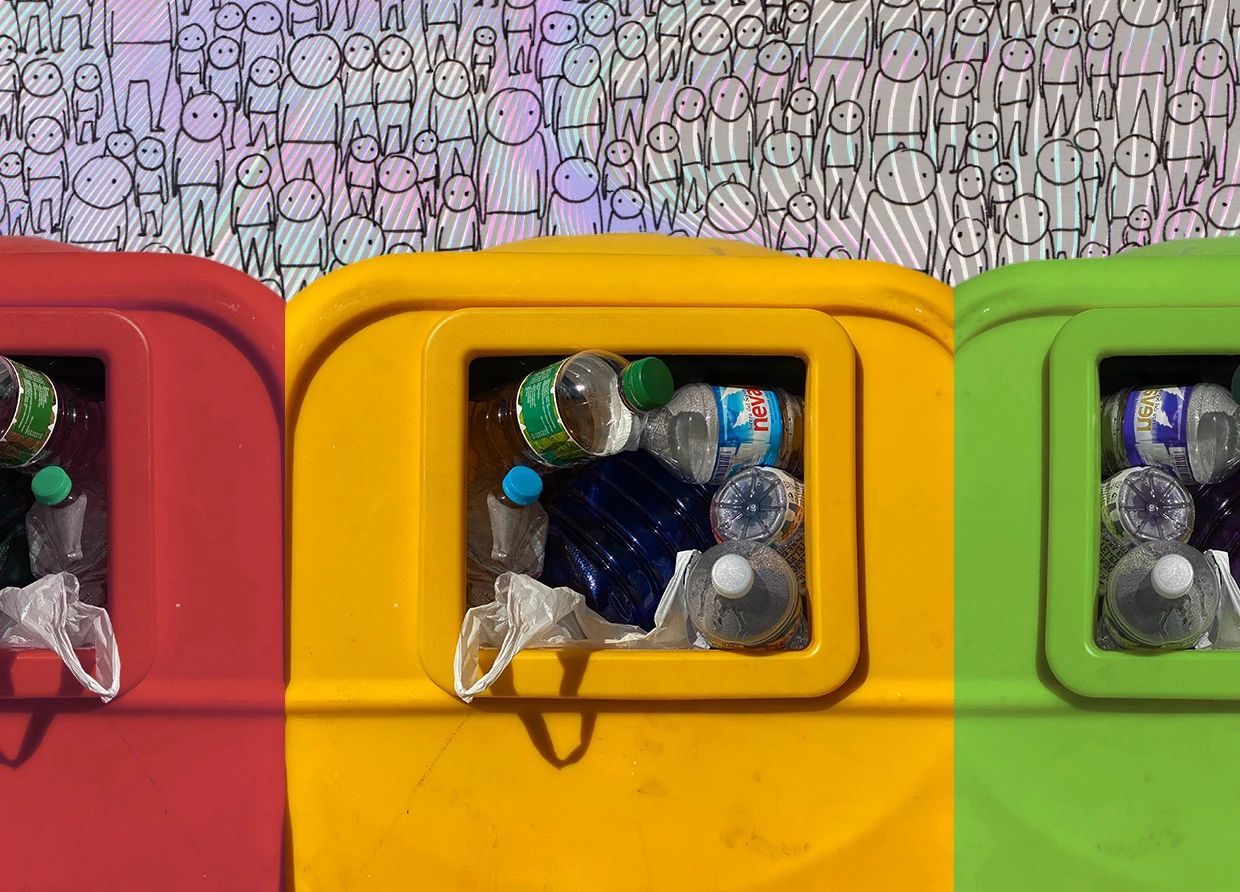TRADE YOUR PLASTIC TRASH FOR RICE AT THE BALI PLASTIC EXCHANGE
The Bali Plastic Exchange encourages people to manage plastic waste properly and rewards them with rice.

Bali's economy came to a halt amid travel restrictions and global lockdowns, and with the shortage of paid work, most locals are left to bear the brunt of the pandemic's adverse effects.
Fortunately, Bali has got a host of creative people with visionary solutions. People like I Made Janur Yasa, a vegan restaurant owner who initiated The Bali Plastic Exchange to help his neighbors overcome the hardships that COVID-19 brought.
View this post on Instagram
To some people, picking up plastic trash can be tedious and excruciating, but Yasa thinks otherwise. Yasa collects the plastic from the island's beaches and parks, and he sends it to a company in Java that can recycle it.
He started a barter system to help clean the environment around his childhood village, Batuaji village, up north from Kuta and Denpasar. Thus, the Bali Plastic Exchange was established in May 2020.
Tri Hita Karana
Tri Hita Karana became the philosophical foundation for Yasa to initiate Bali Plastic Exchange. Tri Hita Karana means three reasons for happiness. The first is human's relationship with the Almighty, the second is the human-to-human connection, and the third is the connection between humans and nature.
The Bali Plastic Exchange aims to help Balinese with basic food while cleaning the environment. Since the Bali Plastic Exchange started its operation, over 300 tons of plastic have been collected. The organizers then gave out over 550 tons of rice in exchange for the collected trash.
One of the most common plastic items Balinese throw away is single-use carrier bags, which is of interest since the success of the movement known as the "Bye-Bye Plastic Bag" was widely celebrated on the island. Plus, there's the fact that the government banned single-use plastic bags and straws.
Consequently, in addition to giving rice for plastic trash, the Bali Plastic Exchange educated its participants about the dangers of unmanaged plastic waste.
Yasa believed that people only need to be educated about plastic waste management. "Traditionally, we believe nature has a soul. People do care about the environment. But the plastic pollution in Bali is because of lack of education and practice," he said.
There are a lot of traditional pearls of wisdom that guide people in Bali. One of these is the concept of "tri hita karana", which means happiness is achieved through a human-to-human connection.
Yasa said that people from all around the world come to Bali due to its unique holistic lifestyle. However, most of its residents felt hopeless because of the pandemic, as many were laid off from work.
"They were feeling powerless, and this gives them hope," said Yasa. "Teenagers come with a smile. Elderly people are there. Young kids come with their mothers. That's what keeps me going, to see them all excited about it."
View this post on Instagram
The enthusiasm from the people
Rupat, a participant who exchanged around four kilograms of plastic trash for a kilo of rice, noted that the villagers were able to benefit from the plastic waste. "Every piece of plastic waste is very valuable for the villagers today and for our economy," he said. In Bali, rice costs around Rp 15,000 to 20,000 per kilogram.
Bali's human-to-human connection is substantial. Balinese will help others in need, and the people in Bali are very good at coming together to create transformation. They gradually learned about the importance of properly disposing of plastic. The island has been very progressive towards plastic waste management.
In response to Yasa's movement, the Saba Banjar, a local community, started to collect plastic waste from the forests, the beaches, and towns once a month. The project's positive effects were eventually echoed and noticed by the locals.
"Now, people think that plastic waste must be sorted and collected, then exchanged. There are even my people who collect plastic on the streets every day," said the director of Saba Banjar, Kadek Merta Anggara.
#THE S MEDIA #Media Milenial



























